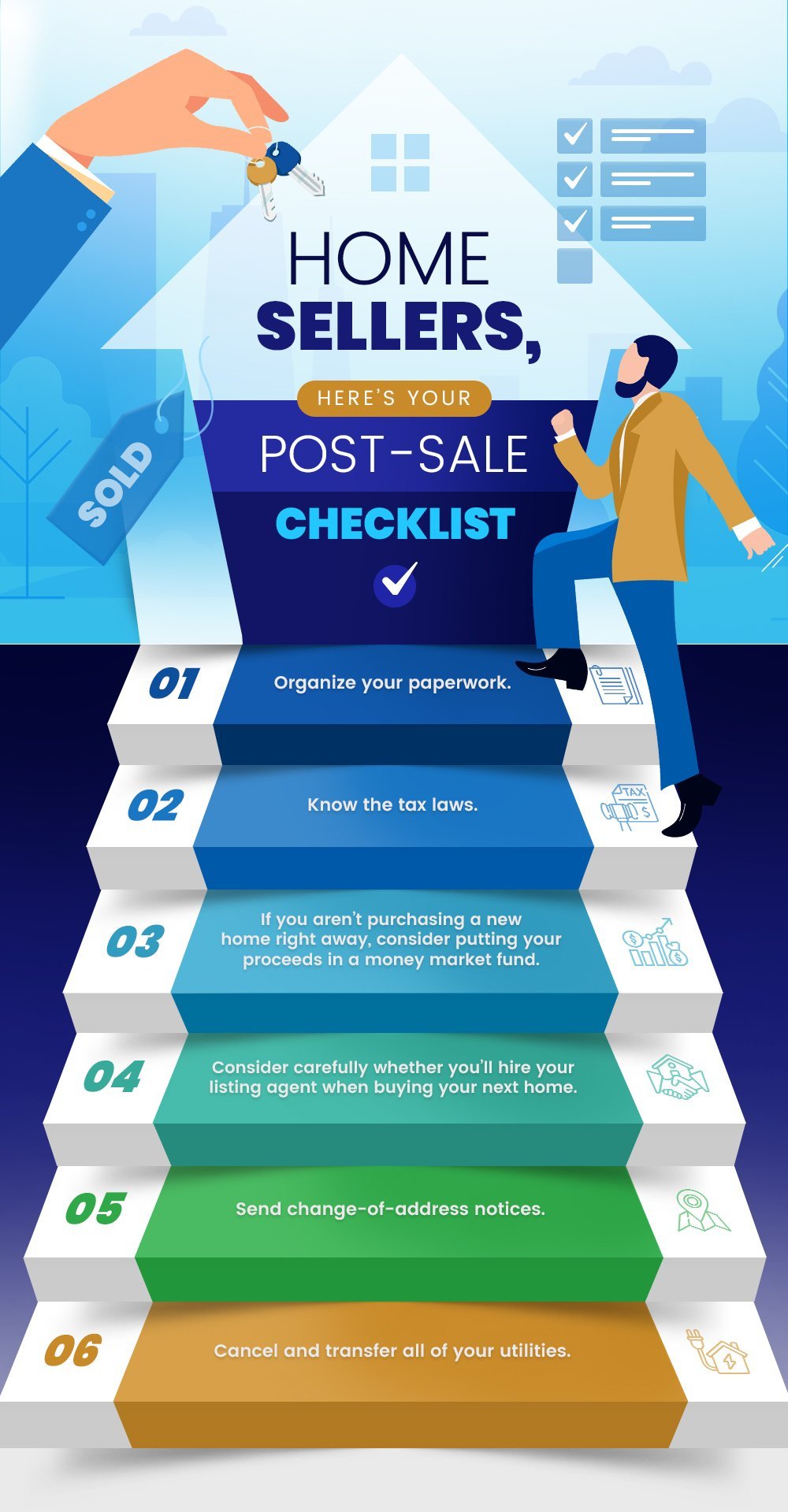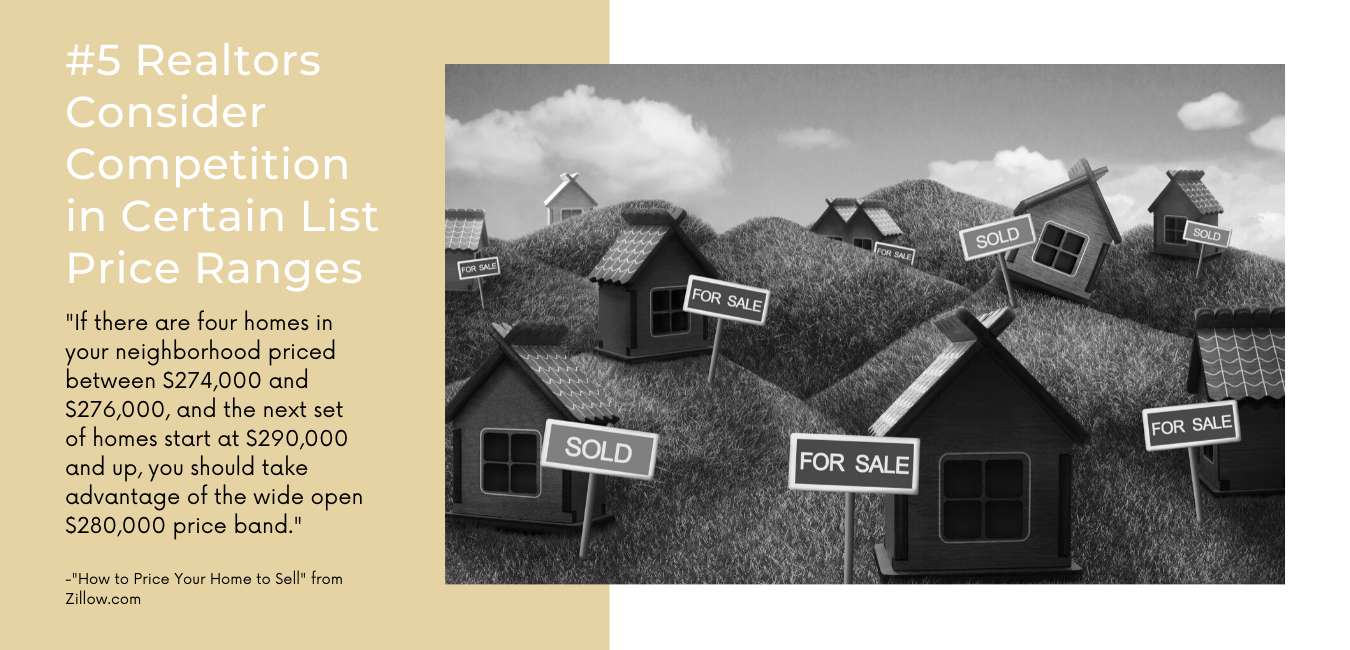When considering selling a house, one should always bear in mind certain vital factors. Two elements that often play a significant role are the state of the house and its market value.
Here are some key pointers to keep in mind during the process of selling your house:
- Avoiding Common Selling Mistakes: Dodging common blunders can save you both time and money.
- Handling Repairs and Upgrades: A well-maintained home can attract higher offers and sell quicker.
- Setting a Competitive House Price: A competitive price can make your house more appealing to potential buyers.
- The Role of Professional Photos: High-quality photos can significantly boost the appeal of your online listing.
- Reviewing and Negotiating Offers: An understanding of this aspect can aid in getting the best possible deal.
- Understanding Closing Costs & Taxes: Being aware of these costs can prevent unexpected expenses during the transaction.
- Significance of a Real Estate Attorney: Having an attorney by your side can provide invaluable legal protection and advice.
Paying attention to these steps can significantly improve your experience when selling a house.
Selling A House: Taking The Right Approach
An important aspect to remember is that every house sale is unique, and what worked for one may not always work for another.
Understand your target market, take their preferences into consideration while preparing your house for sale.
Keep in mind that first impressions matter a lot to buyers, so make your home as attractive as possible.
A transparent approach about any existing issues like water damage can garner trust from prospective buyers.
Selling a House: Crucial Steps

Identifying your primary selling goal is the first step in selling your house. Whether you aim for a top-dollar sale, quick transaction, or stress-free process, setting a clear objective is crucial.
It’s also essential to collect all home improvement records. Detailed documentation illustrating the history of repairs, maintenance, and upgrades can significantly influence a buyer’s perception.
Before listing your house, do basic repair work. Fixing minor issues like leaky faucets or squeaky doors can significantly enhance your home’s appeal.
Know your mortgage payoff amount. This information helps set a realistic sale price and keeps financial surprises at bay.
The role of a real estate agent cannot be overstated; this professional will guide you throughout the process and help you with strategies tailored to your neighborhood and goals.
Do some research on recent property sales in your area. This will provide insight into what buyers are willing to pay for a similar property.
Consider making necessary upgrades or renovations. Enhancements such as painting can increase your home’s value and appeal.
Decluttering is another essential step; removing personal items makes it easier for potential buyers to envision themselves in the space.
You should also ensure the home is immaculate. Regular dusting and maintaining cleanliness create a positive impression on buyers.
Consider professional staging as it can make your home look incredibly inviting and attract buyers. Regular inspections prior to listing can also help you address potential issues preemptively.
Setting a realistic sale price is crucial, while detaching emotions from the pricing decision can help get as close as possible to your asking price.
Finally, keep a meticulous record of all closing and settlement paperwork for future tax purposes and potential audits.
Avoiding Common Selling Mistakes

Selling a house is an intricate process. Avoiding the typical mistakes sellers make can be crucial, such as being overly informative.
Don’t Overwhelm Buyers
Many sellers focus heavily on providing extensive details about their home. This approach can overwhelm buyers and fail to persuade them.
Rather than just providing facts, highlight the benefits and value your home can offer. This shift in focus helps resonate with potential buyers.
Closing the Sale
A vital aspect of the sales process is securing a commitment. Not having clear next steps can lead to lost opportunities.
Ensure that your negotiation includes a clear call to action and outlines the necessary steps forward.
Preparation is Essential
Winging your sale can undermine trust. A successful sale requires thorough preparation and rehearsal.
This includes planning the content of your discussions, structuring narratives about your home, and practicing the delivery to ensure it is smooth and engaging. By avoiding these pitfalls, you increase chances of a successful sale. To read more about this click here.
Handling Repairs and Upgrades

Facing an uneven shower stream? The culprit is often the pressure balance cartridge hidden behind the shower’s handle. Fortunately, you can install a new one for about $15.
To fix this issue, start by shutting off the water to your shower. Then, carefully remove the screws holding the handle and trim plate on, followed by unscrewing the cap over the valve.
Pull out the old cartridge using pliers and slide in a new one. Finally, rebuild the handle to complete the process.
Leaks in faucets can lead to significant water wastage – more than 8 gallons daily! Address this by purchasing a replacement cartridge if your fixture has two handles and is less than 20 years old.
Turn off the water underneath your sink before you start. Loosen the fastener, then pull off the leaky handle and swap in your new part with a pair of pliers.
A puddling toilet can be a nuisance. If there’s no water beading on the tank’s outside, it’s likely that the wax ring sealing your fixture to the waste pipe is failing.
The solution? A flexible polyurethane foam ring that’s resistant to both water and chemicals. You can find one for about $17 on Amazon.
To replace it, you’ll need to disconnect and empty your toilet first. Next, use a wrench to remove the nuts holding your toilet, lift it out of its place, and pry up the old wax ring with a putty knife.
Scrubbing with Bar Keepers Friend can help eliminate toilet bowl scratches. And to avoid future scratches, consider purchasing a closet auger with a protective rubber sleeve.
In need of a baluster repair? First, remove the stair tread’s end cap with a mini pry bar. Measure from an existing baluster’s tread to where it touches the underside of the handrail, then transfer this measurement to your new baluster.
Finally, calibrate your miter saw to the angle of the railing marked on your new baluster and cut accordingly. Then, insert your new baluster, drive finish nails through it into the railing’s underside and replace the tread’s end cap.
If your solid-wood door is sticking due to seasonal humidity changes, you can fix it by deepening the mortises with a chisel or removing material from the edge of the door with a plane. Remember to prime and paint any newly exposed wood and rehang your door after adjusting it.
Setting a Competitive House Price

Establishing a competitive house price requires understanding your local market. This involves:
- Examining recent sales of similar homes in your vicinity.
- Identifying pricing patterns tied to specific property features.
- Evaluating market trends to determine if it’s a buyer’s or seller’s market.
- Leveraging tools like Zillow, Redfin, and Realtor.com to research local market trends.
Determining your home’s value is equally crucial. A professional appraisal can shed light on this aspect. The age, condition, and upgrades of your property all factor into this value. It’s also beneficial to research the average sale price per square foot in your area.
Pricing strategy plays a pivotal role too. Pricing your home slightly lower than its true value can attract more buyers, potentially leading to a bidding war. Avoid rounding off prices; using odd numbers makes the price more memorable and appealing.
Incentives such as covering closing costs or offering repair credits can make your offer stand out. However, be prepared for negotiations. Keeping an open mind to reasonable offers and counteroffers might bring you closer to closure.
Pricing correctly from the outset is critical as it influences the number of offers, showings and the time it takes for closure. Mispricing can lead to longer sale times or selling at a lower-than-desirable price.
Enlisting the help of a real estate agent can be useful too. Their deep understanding of the local market and expertise in staging homes, negotiation, and marketing could prove invaluable.
The Investopedia link we referenced provides additional insights. Avoid ignoring comparable sales data, and consider the impact of seasonal patterns on your sale.
The secret to competitive pricing lies in factoring in your home’s best features and using high-quality listing photos. Remember, setting a competitive house price is a delicate balancing act.
The Role of Professional Photos

If you’re selling a house, the importance of professionally taken photos cannot be overstated. They’re instrumental in advertising your property to potential buyers.
Professional photographers not only take a bunch of images but also edit them post-production, making the property look attractive for various media platforms.
Capturing Variety
These experts may specialize in specific genres like architectural photography for your property’s exteriors, or interior design photography for the inside views.
However, most professionals have skills to capture a wide range of subjects and settings, ensuring comprehensive coverage of your home.
The Art of Presentation
They bring the visual appeal of your property to life using high-quality equipment. The final product is often ready-to-use content for print or digital media.
A well-clicked photo can effectively highlight the features of your property, thus increasing its marketability.
Value-Addition Services
Besides clicking pictures, professional photographers also provide value-addition services such as image modification and enhancement, thus making your property look even more appealing.
The service doesn’t end with the delivery of photographs. They often recommend suitable places for display and even provide options for framing.
To understand more about professional photographers’ responsibilities and how they can help you sell your property, you can visit this source.
Investment that Pays Off
Investing in professional photography when selling a house isn’t just an expense. It’s an investment that pays off by helping you attract potential buyers quickly.
This ultimately speeds up the selling process, making it a wise decision to hire a professional for the job.
Reviewing and Negotiating Offers

Finding the right home goes beyond aesthetics. Consider Zillow’s market “comps” and consult your real estate agent for tailored listings.
If affordability concerns you, conduct an appraisal to ascertain the property’s value and analyze market trends to measure the asking price’s fairness.
Setting an offer price is a balanced process. Leverage a comparative market analysis from your agent, evaluate recent sales in your target area, and potentially include an escalation clause if the housing market appears heated.
| Finding the Right Home | Assessing Home Value | Preparing For Negotiations |
|---|---|---|
| Determine your budget and desired aesthetics | Analyze local market trends and order an appraisal | Create strategies with an experienced agent |
| Look at Zillow’s market “comps” for comparable homes | Ensure the asking price aligns with home’s appraised value | Decide on contingencies like inspections or appraisals |
| Consult with your real estate agent | Gauge the reasonableness of the asking price | Prepare for potential counteroffers |
| Shortlist properties that match your needs | Evaluate offers against recent similar home sales | Acknowledge potential risks when waiving certain contingencies |
| Consider locations based on lifestyle or work | Avoid overspending based on emotional factors | Set realistic upper limits and respond efficiently to multiple offers |
| Remember: always plan for potential revisions and keep negotiations open. | ||
Negotiating is part of the process. Anticipate revisions and remain prepared to adjust your offer within a reasonable range based on market conditions and comps.
Strengthening your offer may require concessions, such as larger earnest deposits or agreeing to a faster closing timeframe. These terms can make your offer more appealing to sellers.
Understanding Closing Costs & Taxes

The home-buying journey is littered with costs and fees, the bulk of which get tallied at closing.
These range between 2% and 5% of the purchase price, vary by property type and location.
Closing costs can be divided into three categories: Mortgage lender fees, third-party fees, and prepaid expenses.
- Mortgage lender fees: These include origination fees, discount points, underwriting fee, appraisal fee, and credit report fee.
- Third-party fees: This involves title insurance, escrow fees, recording fees, flood determination fee.
- Prepaid expenses: These comprise of property taxes, homeowners insurance, interest.
So for a $250k home, closing costs might fall between $4.5k and $11.5k. Some of these charges are open to negotiation.
Note that factors influencing closing costs include location, property type, loan type, credit score and purchase price.
Buyers can reduce closing costs by comparing lender fees, negotiating with lenders or third-party providers,
considering alternative loan options or asking the seller to contribute. Some states offer tax credits or incentives to offset home-owning costs.
Bear in mind property taxes can sway your closing costs. As per this helpful guide from NerdWallet, these typically between
0.5% and 2% of the purchase price annually, but could be higher or lower depending on location.
Lastly, remember that lenders are obliged to provide an estimate of closing costs (Good Faith Estimate) within three business days from receiving a loan application.
Review the GFE prudently and question any dubious charges.
Significance of a Real Estate Attorney

A real estate attorney plays an essential role in safeguarding client’s rights and interests during property transactions. Their duty extends to buyers, sellers, property developers, investors, lenders.
Negotiating Contracts
The attorney reviews and restructures property sales contracts and leases to meet the client’s goals. This ensures that all agreements align with the client’s requirements.
Title Searches
An important task is conducting a detailed title search. Identifying potential problems or restrictions that could affect the property’s title is crucial.
Dispute Resolution
Disputes over property ownership, boundaries, or contractual obligations can be resolved by attorneys. They stand ready to handle disputes and litigation when necessary.
Guiding clients through due diligence is another aspect of their work. They investigate the property’s condition and address any related concerns.
Real estate attorneys also provide advice on tax implications during property transactions. They help structure financial arrangements beneficial to their clients.
They decipher regulatory requirements and local ordinances regarding zoning, land use, and environmental issues. Their expertise in these matters assures clients that their transactions are in line with local regulations.
These professionals oversee the entire property transaction process, from document preparation to agreement execution and title transfers. This guarantees smooth transactions for all parties involved.
In case of disputes or litigation, a real estate attorney can serve as an expert witness in court. This speaks volumes about their importance in ensuring a smooth, secure legal transaction or property management process.
Involving a real estate attorney in transactions safeguards your legal and financial interests. You can find more extensive information about what a real estate attorney does here.
Unnecessary Fixes
When selling a house, avoid costly, non-essential renovations. It’s not necessary to replace appliances or execute major landscape upgrades. Instead, focus on basic repairs and maintenance tasks that impact the home’s functionality and appeal – like fixing leaky faucets, patching holes, and giving walls a fresh coat of paint. Let potential buyers customize their future home’s décor.
